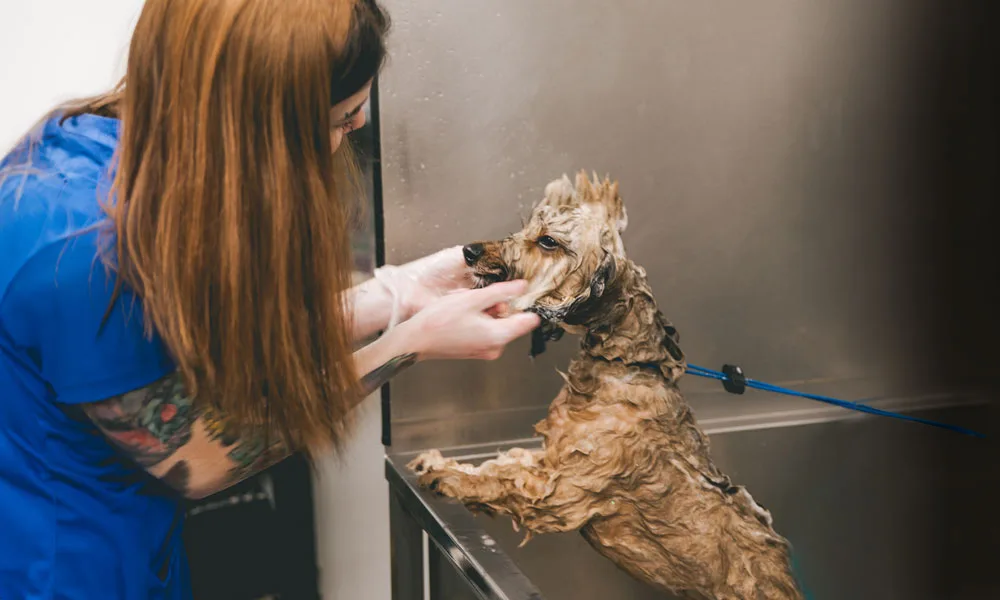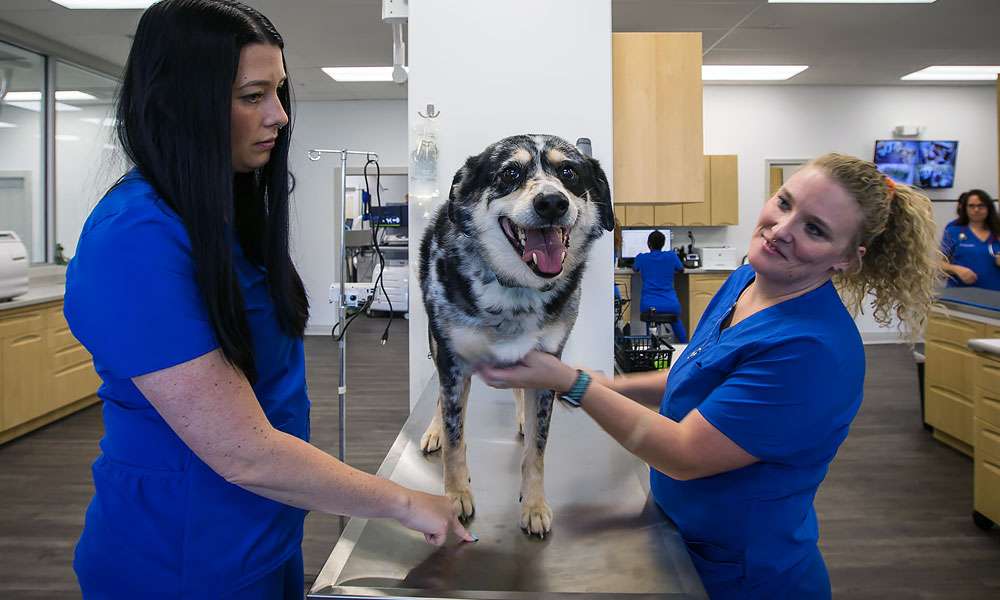
Spring is a beautiful season in Pensacola, Florida, marked by blooming flowers, warmer weather, and longer days, perfect for outdoor adventures with your dog.
However, spring also brings seasonal allergens, such as pollen, grass, and mold spores, that can trigger allergy flare-ups in our furry friends.
Thankfully, East Hill Animal Hospital, part of the trusted Pensacola Pets family of companies, is dedicated to helping dog owners navigate the complexities of canine allergies, ensuring their pets remain happy and healthy throughout the season.
One of the most common allergy-related conditions dogs experience in the spring is atopy, also known as environmental allergies. Atopy occurs when dogs inhale allergens like pollen or come into direct contact with them on their skin. These allergens can trigger an immune response, causing uncomfortable symptoms that significantly affect a dog’s quality of life.

Pet owners often first notice their dog’s allergic reaction through behaviors such as excessive licking, scratching, and chewing of their paws or skin. These actions are a dog’s way of coping with irritation and itching but can lead to further complications if left untreated, including skin infections, hair loss, and chronic inflammation.
East Hill Animal Hospital emphasizes early detection and prompt treatment of allergy symptoms. Their experienced veterinary team begins with a thorough examination to identify the exact cause of your dog’s discomfort. This assessment may include allergy testing through blood tests or skin tests to pinpoint specific allergens causing reactions.

Once allergens are identified, East Hill Animal Hospital veterinarians develop personalized treatment plans designed to minimize allergic reactions and manage symptoms effectively. Treatment options may include topical creams or sprays, antihistamines, specialized shampoos, and dietary supplements designed to enhance skin health. In more severe cases, your veterinarian might recommend prescription medications or in extreme case, immunotherapy, which is a process of gradually exposing your dog to small amounts of allergens to help their immune system build tolerance over time.

In addition to medical treatments, East Hill Animal Hospital provides practical advice for pet owners to manage springtime allergies proactively. Regular bathing can significantly reduce allergens on your dog’s skin and coat, reducing itching and irritation. The veterinary team suggests using hypoallergenic shampoos that soothe sensitive skin without stripping essential oils.
Additionally, minimizing exposure to allergens is crucial. Dog owners are encouraged to limit their pet’s outdoor activities during peak pollen times, typically early morning and late afternoon. Regularly wiping your dog’s paws and body after outdoor play can remove pollen and other allergens before they trigger a reaction.

Furthermore, maintaining a clean home environment is essential in controlling allergen exposure. Frequent vacuuming, using air purifiers, and washing your dog’s bedding regularly can significantly reduce allergen buildup indoors.
East Hill Animal Hospital is more than just a veterinary practice; it is part of the comprehensive Pensacola Pets family, known for outstanding pet care services throughout the Pensacola area. Their dedicated team understands how distressing allergies can be for both dogs and their owners. By offering advanced diagnostics, personalized treatments, and practical advice, East Hill Animal Hospital helps ensure that seasonal allergies do not prevent pets and their families from enjoying the beautiful spring months together.

Dog allergies, particularly atopy, can be challenging, but your furry friend can experience relief and improved comfort with proper veterinary guidance and proactive care. Trust the experienced team at East Hill Animal Hospital to help your dog stay healthy and happy this allergy season.
For support managing your dog’s seasonal allergies, schedule a consultation today and let East Hill Animal Hospital‘s expert care team guide you through every step of the allergy management process.
